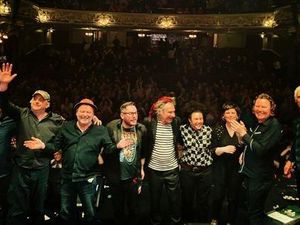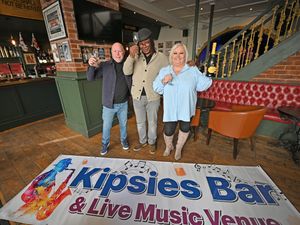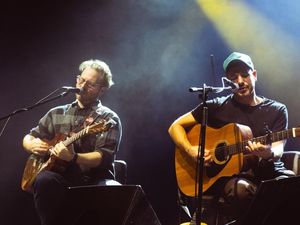Reason Birmingham missed out on Eurovision revealed as final shortlist is announced
Birmingham is out of the running to host the 2023 Eurovision Song Contest, after a "technical issue" around the city's proposed venue.
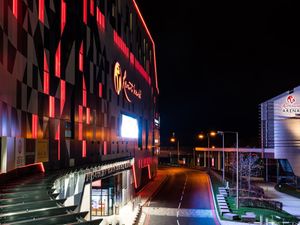
The BBC announced that the final two cities vying to host the competition would be announced today, and Birmingham awaited the decision with bated breath,
Despite hosting the competition the last time it was in the UK in 1998, and this year's Commonwealth Games, Brummies were left disappointed by today's decision.
Liverpool and Glasgow will battle it out to stage the world-famous singing competition, with a final decision on the host city to be announced over the next few weeks.
However, West Midlands Mayor Andy Street has voiced his frustration over Birmingham not making it to the final two cities in contention - due to an issue around the venue's "roof height".
Mr Street said: "Birmingham hasn’t made the Eurovision run-off due to a technical issue around the venue’s roof height.
"An incredibly frustrating reason to miss out - not least because of the solutions the NEC put forward.
"We gave it our all, and will continue to bid for the biggest events."
Birmingham bid organisers had proposed the Resorts World Arena as the venue, which is on the NEC complex near Birmingham Airport.
The arena has a capacity of 15,685 seats and opened as the "Birmingham International Arena" in December 1980 with a concert by Queen.
The venue has been described by Ian Ward, the leader of Birmingham City Council, as “second to none”.
After the final two cities were announced, Councillor Ward said he was "gutted" the city missed out, adding that Birmingham would have staged "an unfortgettable Eurovision for our friends in Ukraine".
He later said: “Congratulations to Glasgow and Liverpool for making the final shortlist to host Eurovision 2023. Birmingham wishes both cities all the best in their bids to be the host city.
“As the Proud Host City of the Birmingham 2022 Commonwealth Games, we know the benefits of hosting such a prestigious global event.
“I would like to thank the NEC Group and everyone involved in the Birmingham bid and a special thank you to our local Ukrainian community and Centrala Space who were fully supportive throughout the whole process.”
Seven UK cities had made it to the shortlist to host Eurovision next year, including Leeds, Newcastle, Sheffield and Manchester - all of whom were eliminated alongside Birmingham today.
It leaves Glasgow and Liverpool to battle it out, after Eurovision organisers decided this year's winner, Ukraine, could not host next year's competition due to the Russian invasion.
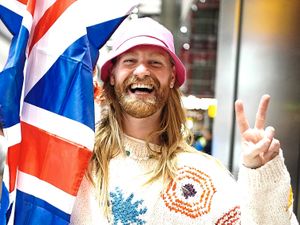
The seven cities were each scored on a set of criteria, including “a suitable venue and sufficient space to deliver the requirements of the Song Contest”, necessary commitment to the contest including a financial contribution, and “alignment with the BBC’s strategic priorities as a public service broadcaster”.
Phil Harrold, the chair of the BBC’s Host City Selection Committee, said: "Thanks to all 7 cities across the UK who have demonstrated the enthusiasm and passion for Eurovision that exists right across the UK.
"We were incredibly impressed by the quality and creativity of all the city bids, in what was a highly competitive field.
"The Eurovision Song Contest is a very complex event and Liverpool and Glasgow have the strongest overall offer; we will continue our discussions with them to determine the eventual host city.
"We are determined to make the 2023 Eurovision Song Contest one that both reflects the winning position of Ukraine and is also an event that all of the UK can participate in."
The official Eurovision Song Contest website has now introduced the two cities left in contention, as excitement builds over the final decision.
Describing Glasgow, the website says: "Glasgow, the biggest city in Scotland, has an epic history and architectural heritage that spans from the medieval to the modern.
"In 2008, Glasgow was named the United Kingdom’s first UNESCO City of Music, thanks to its heritage and contemporary vibrant and varied music scene that hosts nearly over 130 music events every week, more than any other Scottish city.
"And let’s not forget the city’s OVO Hydro arena appears in the Netflix film Eurovision Song Contest: The Story of Fire Saga.
"The Eurovision connections don’t end there either! Glasgow girl Lulu won the 1969 Contest with Boom Bang-a-Bang."
Describing Liverpool, the website goes on to say: "Liverpool is a city that dances to its own beat - and 50 years after The Beatles exploded onto the world stage, it’s still making all the right noises.
"Thoughts immediately jump to the ‘Fab Four’, but Liverpool’s diverse musical heritage goes back hundreds of years thanks to the city’s development as one of the world’s most important ports.
"A UNESCO Music City for good reason, Merseyside’s contribution to the world of pop has been extensive, with notable acts including: Frankie Goes To Hollywood, Gerry and the Pacemakers, Orchestral Manoeuvres in The Dark, The Mighty WAH!, Echo & The Bunnymen, Dead or Alive, The Lightning Seeds, Space, Mel C, Atomic Kitten, and, of course, Eurovision Song Contest 1993 runner-up… Sonia!"


